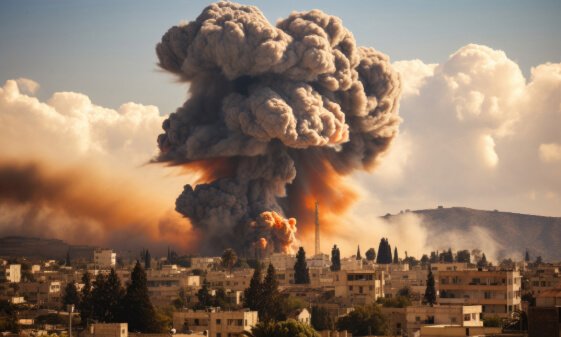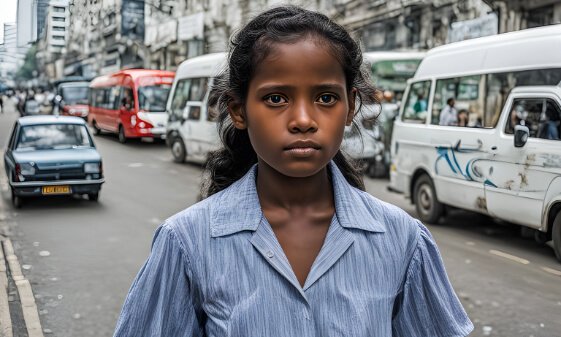
Social and Psychological Cost of Karnataka’s 12-Hour Workday Proposal
The Karnataka government's proposal to extend the daily working hours from 10 to 12 and increase overtime allowances from 50 to 144 hours over three months runs counter to both the spirit and the scientific rationale of labour law. Such an amendment disregards decades of evidence about the physical, mental and social toll of prolonged work hours.

The News Media Has Forgotten What Elections Are For
On June 19, voters in five Assembly constituencies across Gujarat, Kerala, Punjab and West Bengal are casting their ballots to choose new representatives for seats that have fallen vacant. But reading the newspapers, that purpose is barely visible. As usual, most headlines have reduced the exercise to a contest between two alliances – the Bharatiya Janata Party (BJP)-led NDA and the Congress party-led INDIA bloc.

G7 Leaders Condemn and Raise Alarm Over Rising ‘Transnational Repression’
At the conclusion of the G7 summit in Canada on June 17, leaders of the seven countries issued a statement condemning transnational repression (TNR). Here’s a look at what TNR means, and whether it also hints at India.

Why Does the Government Fear a Caste Census?
The central government’s gazette notification for India’s upcoming 2027 census omits the word “caste.” This, despite earlier public assurances that caste data would be collected. The absence of explicit mention has triggered accusations of deliberate evasion. Is the reluctance tied to the disruptive potential of a full caste enumeration—one that could unsettle the ideological foundations of Hindu nationalist politics?

What Students, Professionals Need to Do When AI Changes the Rules
A recently released AI Index 2025 by Stanford University presents evidence that many AI systems now perform better than average human scores in several professional tasks. These systems are already influencing how decisions are made and how work gets done. Students and professionals, therefore, need to understand what this developing situation demands and how to respond to stay effective and relevant.

Is Nepal Criminalising Dissent in the Name of Digital Regulation?
A bill tabled earlier this year in Nepal’s National Assembly to regulate social media platforms remains pending—thankfully so, as it follows a growing trend across South Asia where governments use legislation to enable surveillance, criminalise criticism and consolidate power. What’s needed is for Nepal’s lawmakers to either annul the bill or amend it substantially. In its current form, its vague language and punitive clauses pose a direct threat to democratic freedoms.

Israel and Iran in Open War, the World Remains Deeply Divided
Israel and Iran are engaged in direct military confrontation, following an Israeli air and drone assault on June 13 targeting critical nuclear and military installations deep inside Iran. Let’s look at the roots of this confrontation and examine why public opinion on this conflict around the world, including in India, remains deeply divided.

What the Inflation Rate Doesn’t Tell You About Everyday Struggles
The official inflation rate is released every month and is used by policymakers and the media as an indicator of whether life is becoming more expensive for citizens. But a paper by the World Inequality Lab shows that this average number hides big gaps in how rising prices affect people at different income levels, especially the poor.

What’s the Role of Opposition in National Security?
India–Pakistan tensions remain in the news more than a month after a ceasefire or agreement was reached. Despite the end of direct hostilities, Operation Sindoor continues, and the ruling party has sent a delegation abroad to lobby foreign governments to pressure Pakistan. Interestingly, this delegation includes members of the opposition. It might seem intuitive that the government deserves full support from all sides in matters of national security—but political science suggests otherwise.

For Most Indians, One Veg and One Non-Veg Meal a Day Is Out of Reach
A recent independent study reveals a disconnect between official poverty estimates and the everyday reality of food access for much of the population. The researchers used government data and constructed what they call a “Thali Index,” which suggests that more than half of India’s population cannot afford to eat even one vegetarian and one non-vegetarian meal a day.

Sri Lanka’s New Mass Grave Reveals the Failure of ‘Peace’ Through Violence
The discovery of a new mass grave in Sri Lanka has once again exposed a truth many have long chosen to ignore—when a government uses violence in the name of peace, it does not stop with those initially targeted. It normalises a dangerous value. That value shapes the system, and in time, becomes the state’s default method of control. Eventually, it turns against everyone.

When Nature Changes Its Rhythm, Communities Suffer
In Bhutan’s high Himalayan pastures, villagers say the alpine plants they’ve used for incense, medicine and fuel for generations are disappearing. But new ecological research shows that many of these plants are still growing, and some are now found in greater numbers. The study raises questions relevant not only in Bhutan but also in the mountains of India, Nepal and Tibet, where people depend on nature’s cycles, as well as across South Asia, where similar shifts are already underway.

7 Maoists Killed in Chhattisgarh; Rights Groups Allege Custodial Executions
Seven Maoist leaders were killed over three consecutive days in armed encounters in Chhattisgarh’s Bijapur district, according to police. Civil rights organisations have alleged that at least some of them were picked up from a village, held in custody, tortured and then executed.

Sidelining English in India’s Governance Isn’t a Good Idea
The central government has launched the Bharatiya Bhasha Anubhag (Indian Languages Section) to free the administration from the influence of foreign languages and promote decision-making in Indian mother tongues. At first glance, it may look like a step toward inclusivity. But it raises several fundamental concerns—both practical and political—that cannot be brushed aside under the guise of cultural revival.

Dear Minister, Policing Women’s Clothing Won’t Fix Men’s Misconduct
At a public function on 5 June, Madhya Pradesh Cabinet Minister Kailash Vijayvargiya said he disapproves of the trend of women wearing “skimpy clothes,” calling it a foreign concept of beauty that clashes with Indian tradition. The remark reflects a flawed notion, as it targets women’s clothing instead of confronting the real issue in India, which is that many men have not been taught to look at or behave around women with respect, regardless of what women choose to wear.

Is Unethical Culture Behind India’s Startup Boom?
India’s unicorns are celebrated, and its startup scene is often seen as the future. But behind the fast-paced success stories, there’s a worrying pattern that can’t be overlooked. A private investigation shows that much of this shiny success has been built on unstable ground.

Floods in Northeast India Are Less a Natural Disaster, More a Policy Failure
Flooding in northeast India has long been treated as an unavoidable natural disaster – a view convenient for those in power, as it conceals the fact that the annual devastation is not inevitable. On June 3, the death toll from rain-related disasters across the eight northeastern States rose to 47 – a loss that could have been prevented.

Bihar Dalit Girl’s Death: Why We Mourn Some Victims and Ignore Others
Why don’t we often feel moved, angry or responsible when we read about tragedies in the news? The recent death of a 10-year-old Dalit girl from Bihar, raped and left in critical condition in an ambulance, may have saddened us for a moment, but not enough to make us act—not even to express outrage online. But this wasn’t the case after the 2012 Nirbhaya Delhi gang rape. Let’s turn to psychology to understand what makes us pick and choose whose suffering we mourn.

Foreign Media First to Report IAF Losses; Govt Keeps Parliament Waiting
The Indian public, and even members of Parliament, first learned about the Indian Air Force’s losses during the early phase of Operation Sindoor through foreign media reports quoting Chief of Defence Staff General Anil Chauhan on May 31. This confirms that the information about the initial setbacks is not classified on grounds of national security. Why, then, has the central government not provided a clear explanation of what transpired during those four days of armed conflict?

Should Religion Be Above Criticism?
A 22-year-old law student in Pune has been charged with allegedly offending religious sentiments after making derogatory remarks about Islam and the Prophet Muhammad. Whatever the merits of the case, the incident raises an important question: should the right to free speech include the right to criticise religion—one’s own or someone else’s?
